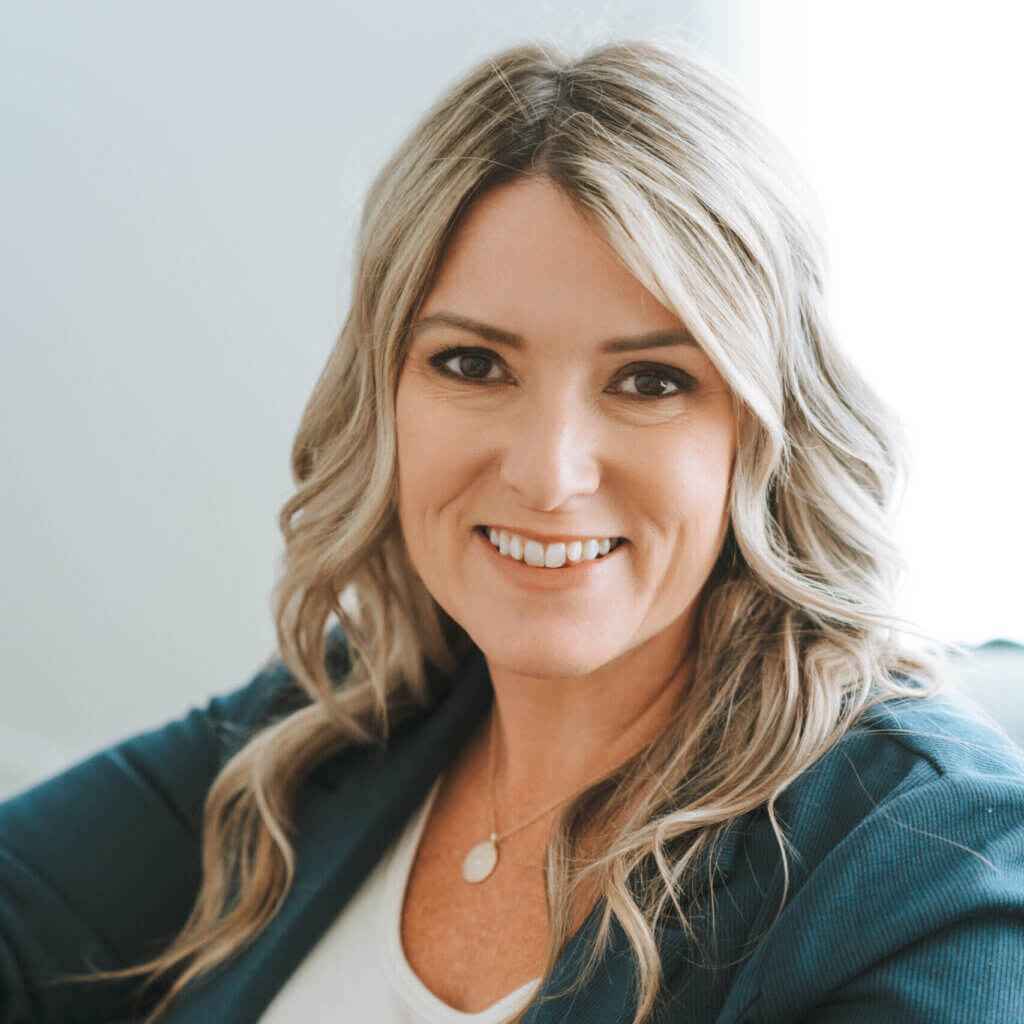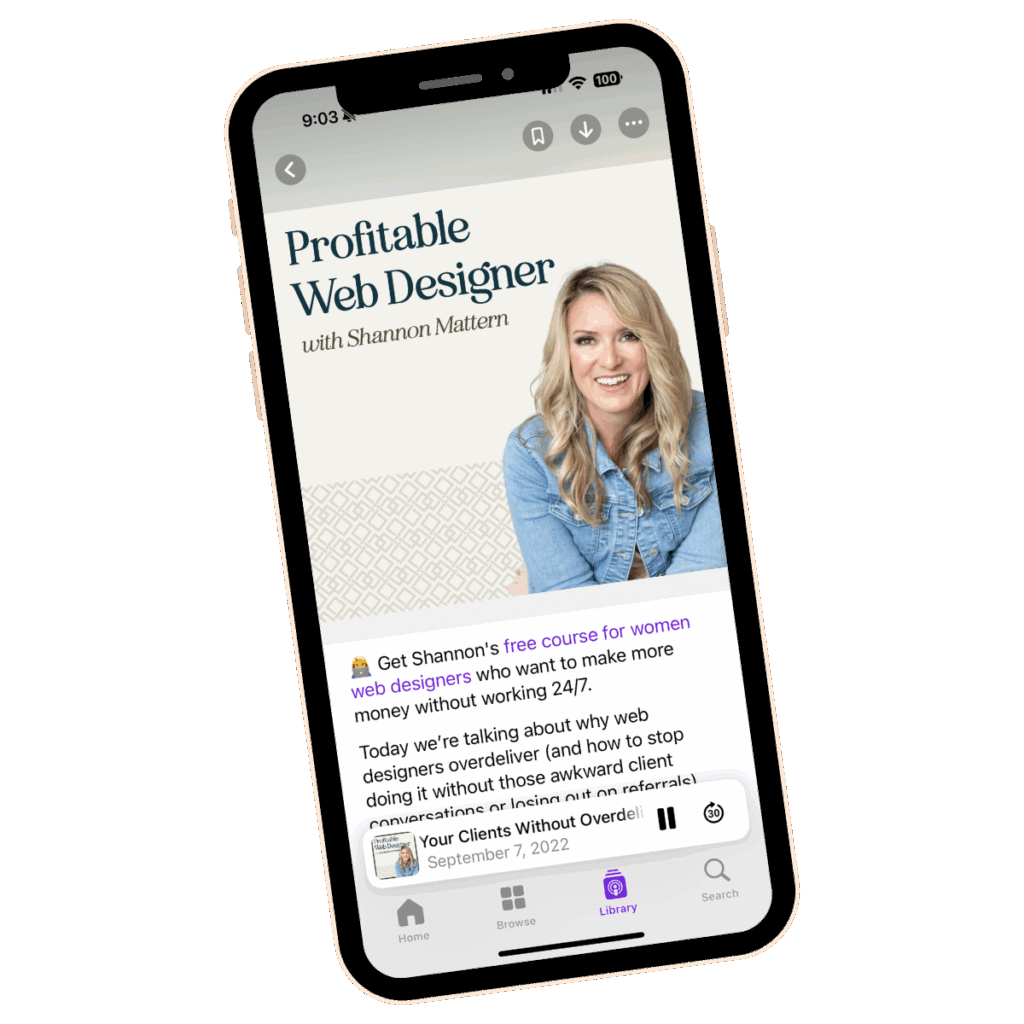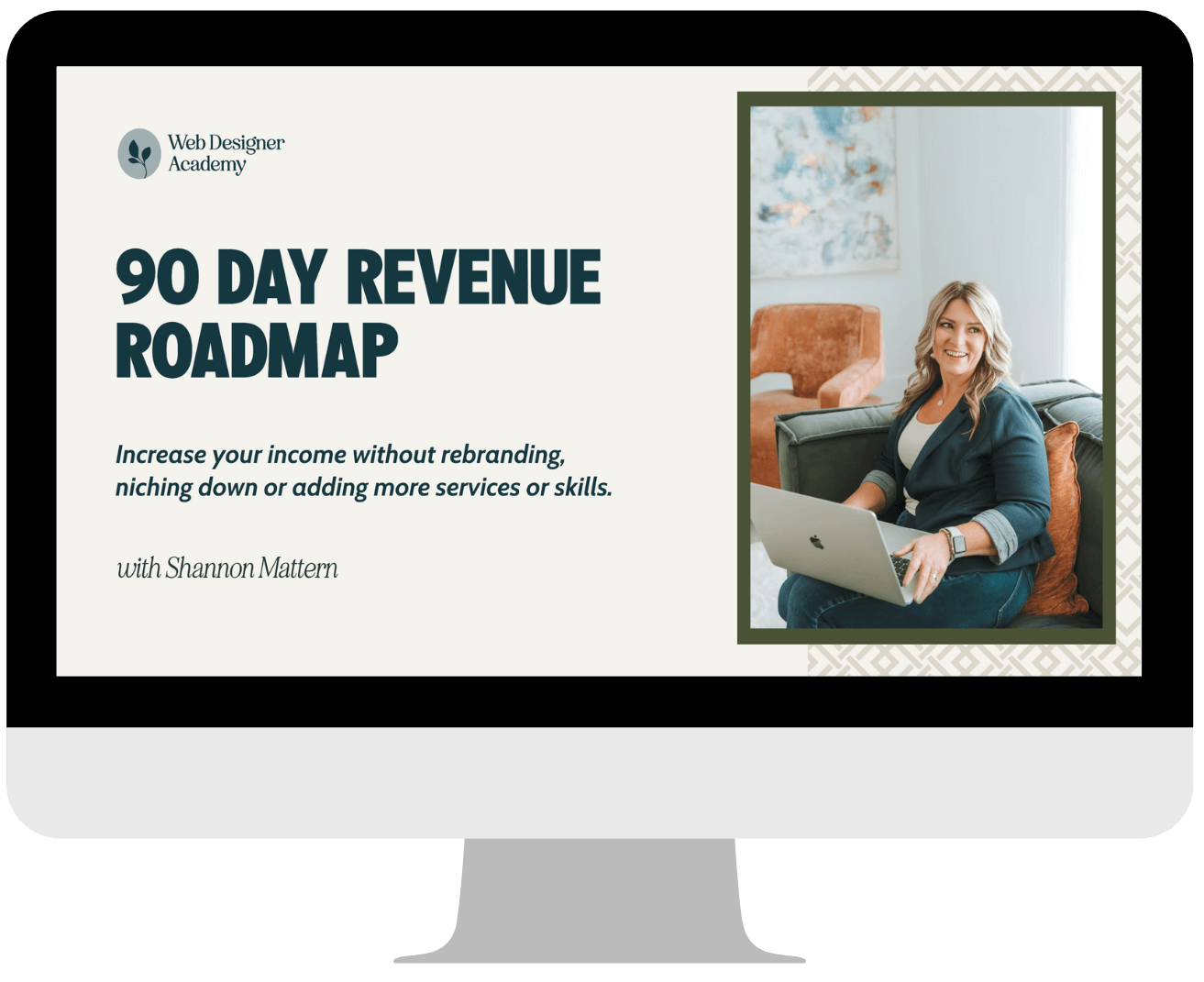In this week’s episode I’m chatting with Web Designer Academy student Kate Newnham about seeking support from a mentor to confidently grow your web design business!
Kate Newnham is the owner of Up Designs LA, where she helps health and wellness businesses create professional, memorable, and awe-inspiring online presences that represent their true value so they can help more people live happier, healthier, and longer lives.
“I thought, ‘no one will ever pay 10k for a website.’ But doing it anyway, and then when someone bought it, and two people bought it, was like, ‘oh wow, this is possible!’” – Kate Newnham
3 key takeaways from my chat with Kate:
-
- There’s no shame in asking for help. Seek out a mentor who has done what you desire to do and lean on them for support to get to the next level.
- Traits that work in the corporate world don’t always translate well into running your own business.
- Set boundaries with your clients so that you can serve from a place of joy, which ultimately lends itself to delivering a better product.
“Take the bold move first and then wait for the result.” – Kate Newnham
We also talk about how Kate:
- Started her business as a side gig while she was searching for a “real” job, and only once she realized the freedom and flexibility of not having a set schedule did she take it seriously.
- Identified that the times she’s been most successful are the times when she’s had consistent support, which led her to join the Web Designer Academy.
- Learned to recognize her unique set of skills brought value to the client and was worth premium prices.
Follow Kate:
- Website: https://updesignsla.com






